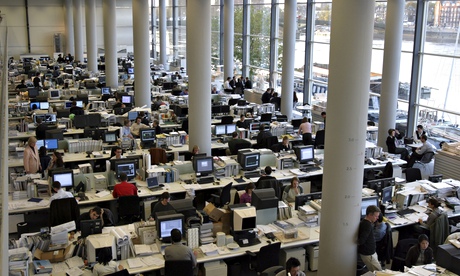
Craving private space at work? You are not alone. If you work in an open-plan office, you may not be surprised to read this.
Extensive international research from Ipsos and the Workspace Futures Team of Steelcase shows that 85% of people are dissatisfied with their working environment and can’t concentrate. Of those surveyed 95% said working privately was important to them, but only 41% said they could do so, and 31% had to leave the office to get work completed.
More than 10,000 workers across 14 countries were surveyed, and key findings also showed that:
• Office workers are losing 86 minutes a day due to distractions
• Many employees are unmotivated, unproductive and overly stressed
• They have little capacity to think and work creatively and constructively
The Ipsos survey follows a separate one earlier this year from Canada Life Group Insurance suggesting that open-plan offices may be detrimental to an employee’s health, wellbeing and productivity. Only 6.1% surveyed thought it was healthy to be in an open-plan environment and just 6.5% thought it was productive.
The health issues are real. In the Canada Life survey, those employees surveyed who worked in open-plan offices took over 70% more sick days than those who worked from home. And a study last year from the University of Arizona found that when someone comes into work sick, about half of the commonly touched surfaces such as telephones, desktops, tabletops, doorknobs, photocopier, lift buttons and the office fridge will become infected with the virus by lunchtime.
The statistics follow a clear move over the years towards a more collaborative working environment, rather than one that offers private space to concentrate on work and for effective wellbeing. In many instances, employees are working in extremely close proximity of each other where conversations, monitors, files and personal belongings are invading their space.
With the introduction of new laws this year giving every employee with 26 weeks or more service the right to apply to work flexibly, for example by staggered hours or working from home, this may help alleviate some of the privacy issues while improving productivity. In order to make a flexible working application, you must set out your request in writing. Your employer is then required to consider such request objectively and in a “reasonable manner”, but remember it is only a right to ask for flexible working – not to be given it. Employers could reject the request, but they must do so for specific business reasons (such as the burden of additional costs), and you should be notified of the decision within three months.
If you think your employer is putting your safety at risk or damaging your health due to an unclean workplace environment, you should report your concerns to management and/or HR in the first instance. If you remain concerned and the problem continues to be unresolved, you can report this to the relevant enforcing authority (such as the Health and Safety Executive or local authority) and ask them to look into it.
Has lack of privacy or health concerns in your workspace been an issue for you? What steps, if any, have you taken to address this?
• Philip Landau is an employment lawyer at Landau Law Solicitors. You can follow him on Twitter @philiplandau

